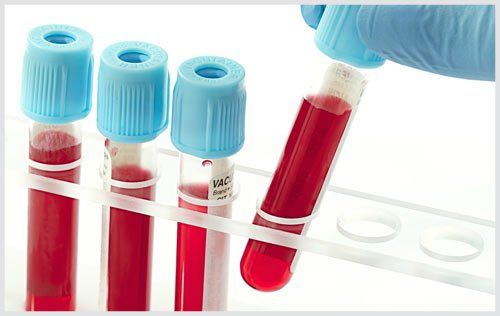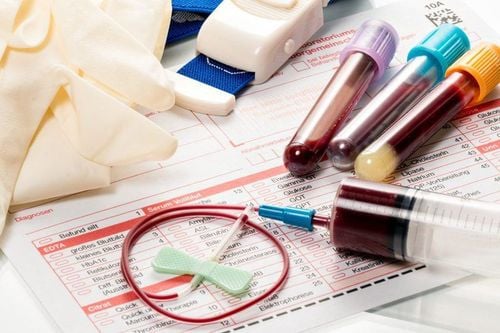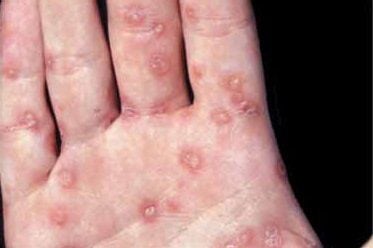This is an automatically translated article.
Among sexually transmitted diseases, syphilis is considered a dangerous and potentially life-threatening disease. In the development of syphilis, there is a latent stage that is difficult to detect, making it difficult to detect and treat the disease.
1. What is syphilis?
Syphilis is a bacterial infection caused by the spirochete Treponema pallidum. This spirochete is slow growing but persistent and difficult to treat. They penetrate directly into the bloodstream and then gradually spread to all organs in the body.
Syphilis has 3 main routes of transmission: through sexual contact, blood transfusion and congenital syphilis transmitted from mother to child.
Syphilis usually has an incubation period of 3-4 weeks, divided into 2 stages: Early syphilis and late syphilis.
Early syphilis: Including stages I, II and early syphilis Late syphilis: Including late syphilis, stage III syphilis and neurological and cardiovascular syphilis. The characteristic of latent syphilis is alternating between periods. The disease has periods when there are no specific symptoms, but it is still capable of spreading to others, especially from mother to fetus, causing many serious effects.
2. The development of syphilis
2.1 Closed syphilis - early
About 2 - 6 months after the appearance of the lesions, the lesions will disappear and enter the early closed syphilis stage. This period has no clinical manifestations but can still be transmitted to others. The disease is detected only if the test is seropositive. An estimated 25% of untreated patients will see re-appearance of stage I or II lesions at the end of year 2 or signs of perianal hypertrophy.

Giang mai kín thường không có biểu hiện cụ thể nên rất dễ lây qua đường quan hệ tình dục
2.1.1 Syphilis period I
Has an incubation period of about 3-4 weeks or so and gradually develops lesions called chancres. Syphilis chancre is a collection of shallow, painless, non-itchy, red sores usually located in the genital area. Usually in these lesions there will be accompanying lymph nodes, which are solid but painless, mobile and do not fester. After a period of time, even without treatment, the abrasion also disappeared, but actually the disease has spread to the whole body.
2.1.2 Syphilis period II
After the appearance of the chancre about 6-8 weeks and progressing for 2 years, the spirochete spreads throughout the body and causes damage to the skin and mucous membranes of the patient. Systemic symptoms such as syphilis rash, syphilis papules, enlarged genitals, swollen lymph nodes....the patient may feel fatigue, joint pain, hair loss..
2.2 Closed syphilis - late
By this time, sick people will be less contagious to healthy people when they come into contact. Many people think that they have recovered but still have the ability to spread to the fetus (from mother to child) causing miscarriage, premature birth or congenital syphilis. Late - late syphilis can last for many years, even a lifetime, without showing any special symptoms. However, one-third of these patients from year 3 on will show symptoms of stage III syphilis.
Stage III syphilis usually appears from the 3rd year and progresses to decades. The spirochetes can cause lesions on the surface of the skin, in the subcutaneous tissues (syphilis tubercle, syphilis gum), in the musculoskeletal, cardiovascular, and neurological conditions of the patient (also known as neurosyphilis, syphilis, and syphilis). cardiovascular apricot)
3. How to detect hidden syphilis?
Closed syphilis often does not show many clinical manifestations of syphilis, making it difficult to recognize and treat. However, the patient can still perform some of the following tests to diagnose the possibility of syphilis:
3.1. RPR . screening response test
RPR screening is currently the optimal testing method for patients with latent syphilis. The principle of RPR screening method is explained as follows: When infected with syphilis, the patient's body will produce antibodies to fight the proliferation and development of the spirochete Treponema Pallidum. Therefore, simply testing for syphilis antibodies in your body can determine your risk of contracting the disease. If the RPR is positive, you have syphilis and vice versa. However, in some cases, the early and late stages of the disease can also give false-negative PRP results. Or if the patient has cancer, immunocompromised, or some other similar infection, it can also give a false positive result.

Bệnh giang mai kín rất khó chẩn đoán nên bệnh nhân cần thực hiện nhiều xét nghiệm
3.2. FTA - ABS . antibody test
FTA - ABS antibody test has a similar mechanism to RPR for the purpose of checking for syphilis antibodies in the body. However, the FTA - ABS test collects samples from both blood and cerebrospinal fluid. Thanks to that, the test results are more specific and detailed, not only recognizing syphilis but also distinguishing it from other infections in the body.
This test method is considered to be relatively complicated, so it needs to be applied at good quality and reputable medical facilities and centers to bring real effectiveness.
3.3. TPPA test
The TPPA test is performed mainly on the patient's spinal cord. To perform the test, specialists will take a very small portion of the patient's spinal cord cells and test them with specialized reagents containing gelatin particles with the patient's serum. If the gelatin particles clump into seromas, it means that the person being tested has syphilis. Conversely, if no agglomeration is present, a negative result can be confirmed for syphilis.
Note: To identify and diagnose syphilis in the most accurate way, the patient should not only take 1 test because there is always a small failure rate in it. On the contrary, try to conduct all the tests as directed by the specialist to bring the best evaluation results.
Vinmec International General Hospital is one of the hospitals that not only ensures professional quality with a team of leading medical doctors, modern equipment and technology, but also stands out for its examination and consultation services. comprehensive and professional medical consultation and treatment; civilized, polite, safe and sterile medical examination and treatment space. Customers when choosing to perform tests here can be completely assured of the accuracy of test results.
Any questions that need to be consulted, you can contact Vinmec Health System nationwide, or register for an online examination HERE.
MORE:
When to think about getting tested for STIs? How is syphilis treated? Characteristics of early stage syphilis













